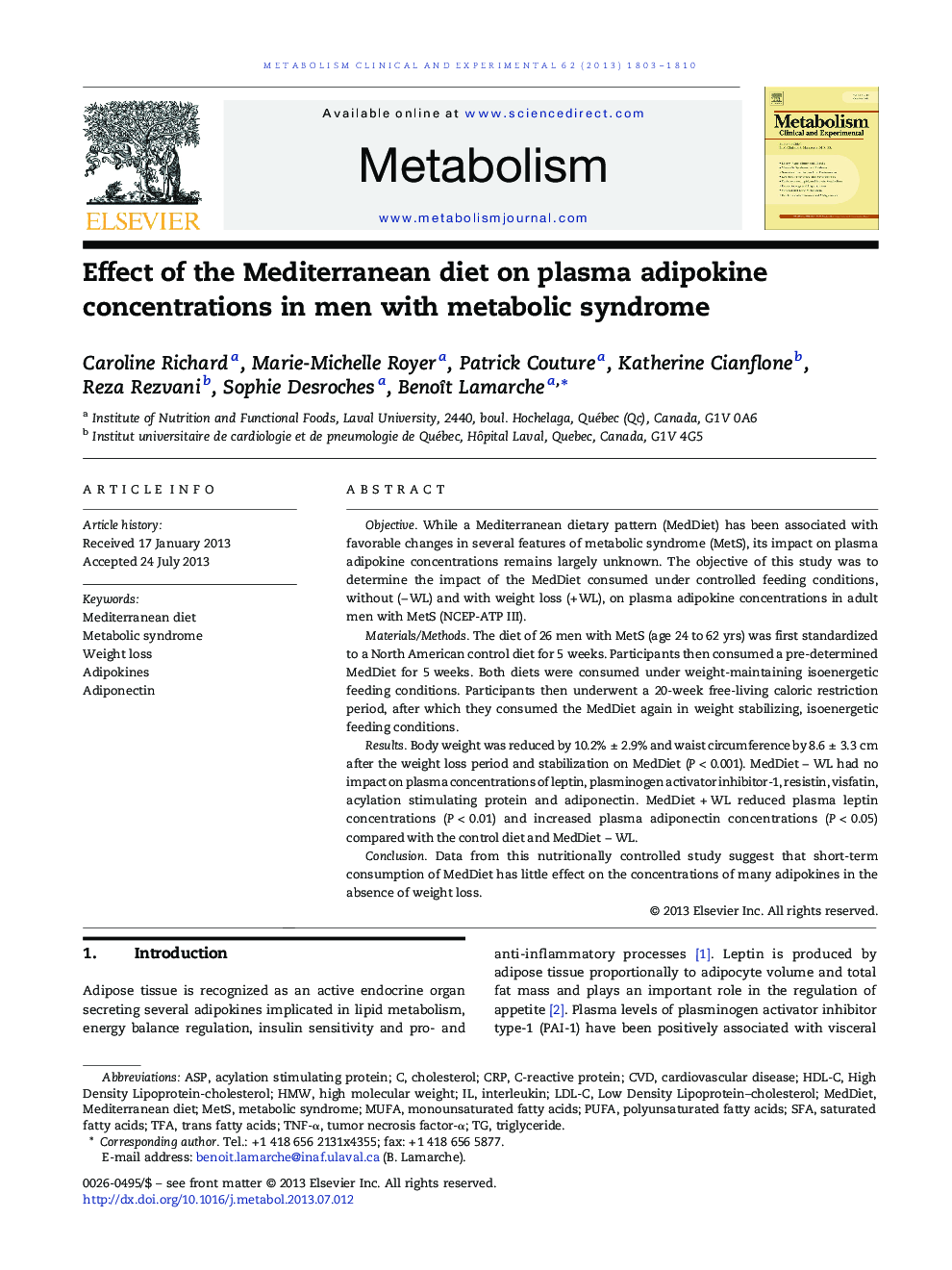| Article ID | Journal | Published Year | Pages | File Type |
|---|---|---|---|---|
| 2805700 | Metabolism | 2013 | 8 Pages |
ObjectiveWhile a Mediterranean dietary pattern (MedDiet) has been associated with favorable changes in several features of metabolic syndrome (MetS), its impact on plasma adipokine concentrations remains largely unknown. The objective of this study was to determine the impact of the MedDiet consumed under controlled feeding conditions, without (− WL) and with weight loss (+ WL), on plasma adipokine concentrations in adult men with MetS (NCEP-ATP III).Materials/MethodsThe diet of 26 men with MetS (age 24 to 62 yrs) was first standardized to a North American control diet for 5 weeks. Participants then consumed a pre-determined MedDiet for 5 weeks. Both diets were consumed under weight-maintaining isoenergetic feeding conditions. Participants then underwent a 20-week free-living caloric restriction period, after which they consumed the MedDiet again in weight stabilizing, isoenergetic feeding conditions.ResultsBody weight was reduced by 10.2% ± 2.9% and waist circumference by 8.6 ± 3.3 cm after the weight loss period and stabilization on MedDiet (P < 0.001). MedDiet − WL had no impact on plasma concentrations of leptin, plasminogen activator inhibitor-1, resistin, visfatin, acylation stimulating protein and adiponectin. MedDiet + WL reduced plasma leptin concentrations (P < 0.01) and increased plasma adiponectin concentrations (P < 0.05) compared with the control diet and MedDiet − WL.ConclusionData from this nutritionally controlled study suggest that short-term consumption of MedDiet has little effect on the concentrations of many adipokines in the absence of weight loss.
